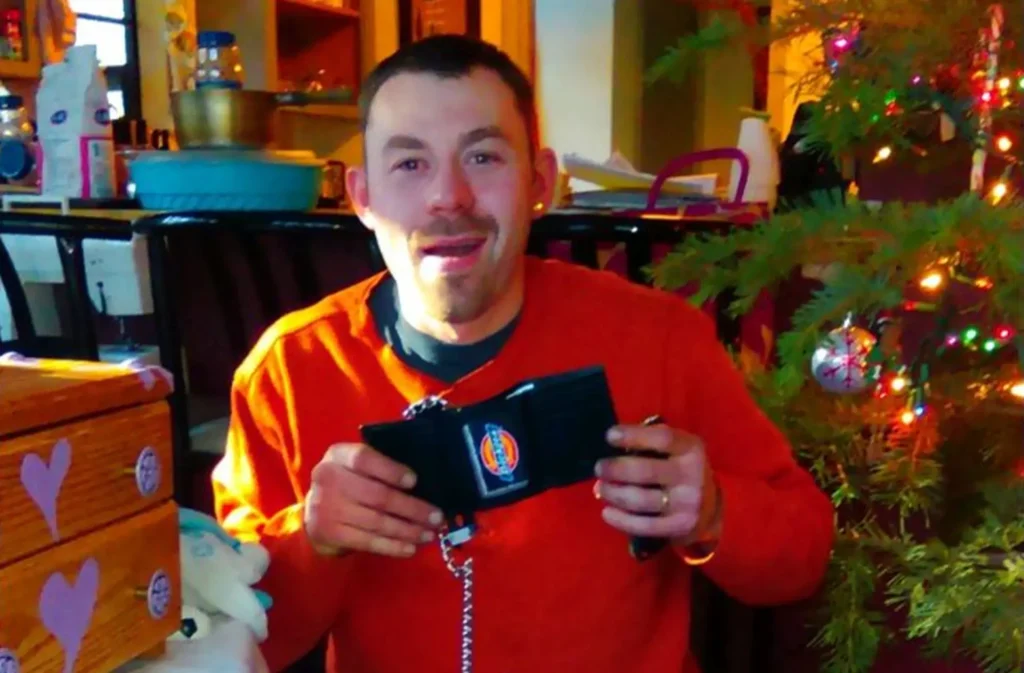In a startling critique of California’s prison system, a federal lawsuit has emerged, accusing the state’s El Dorado County Jail of gross medical negligence resulting in the death of Nicholas Overfield, a 38-year-old HIV-positive inmate. Overfield’s tragic demise, attributed to complications arising from the denial of crucial antiretroviral medication, has ignited public outrage, prompting a closer examination of health, humanity, and ethical standards within correctional facilities.
Arrested in February 2022 for a failure to appear in court, Overfield had explicitly communicated his HIV-positive status and the need for consistent medication. Shockingly, these pleas were not only documented but callously disregarded, leading to a significant deterioration in Overfield’s health by April of the same year. During a visit to the jail, his mother was confronted with the heartbreaking sight of her son, incapacitated and unable to stand, speak, or comprehend his surroundings.
The spotlight in this lawsuit falls on Wellpath Community Care, LLC, the healthcare contractor for the jail, accused of negligence in providing timely and essential medical care. Patrick Buelna of Pointer & Buelna LLP, representing Overfield, emphasizes the lawsuit’s significance in championing human rights and preventing similar tragedies in the future.
Tragically, Overfield’s ordeal is not isolated, with his legal representation citing “several other documented incidents” of healthcare malpractice concerning HIV-positive detainees in California jails. The lawsuit underscores a disturbing pattern by Wellpath, raising concerns about the broader healthcare landscape within correctional facilities.

Read more:
- Acts of Kindness: Good Samaritan Supports a Homeless Man and His Dog in Returning to Their Street.
- Untouched Wealth: $2 Million in Coins Still in Existence
- New Moms in Texas Eligible for Full-Year Medicaid and CHIP Benefits
- Tragic Dental Procedure in Texas Leaves Miami Woman with Severe Brain Damage
Transferred from El Dorado County Jail to Barton Memorial Hospital in a dire state, Overfield’s condition had reached a critical stage. Shockingly, a nurse’s note revealed that he hadn’t received his medication since the beginning of his incarceration, exposing a severe lapse in care. From Barton, Overfield was moved to a San Francisco hospital and eventually to a hospice, highlighting the severity of his decline, culminating in his death on June 21, 2022, from encephalitis varicella-zoster virus.
The legal claim asserts that Overfield contracted this virus while still a pretrial detainee, a situation that could have been averted with prompt medical intervention. The legal team argues that the defendants either remained alarmingly unaware or chose to ignore the critical nature of Overfield’s condition until confronted by his distressed mother.
As of now, El Dorado County and Wellpath have not issued statements in response to the grave allegations. The lawsuit, however, goes beyond seeking justice for Overfield’s family; it serves as an indictment of the prison system, questioning the ethical and legal standards concerning the provision of constitutionally adequate medical care to inmates.
This case unfolds against the backdrop of a growing scrutiny of the prison healthcare system, prompting concerns about whether prisoners, considered among the most vulnerable in society, receive the basic human decency of adequate healthcare meeting ethical and legal standards.
With the United States hosting the world’s largest prison population, the implications of this lawsuit extend far and wide. It becomes a pivotal moment calling for systemic change and introspection within prison healthcare ethics. Nicholas Overfield’s tragic loss has sparked a profound and passionate debate about the intersection of law, humanity, and health behind prison walls. This robust conversation is expected to evolve as the case progresses through the court system, resonating as a clarion call for reforms in the broader landscape of prison healthcare.















+ There are no comments
Add yours